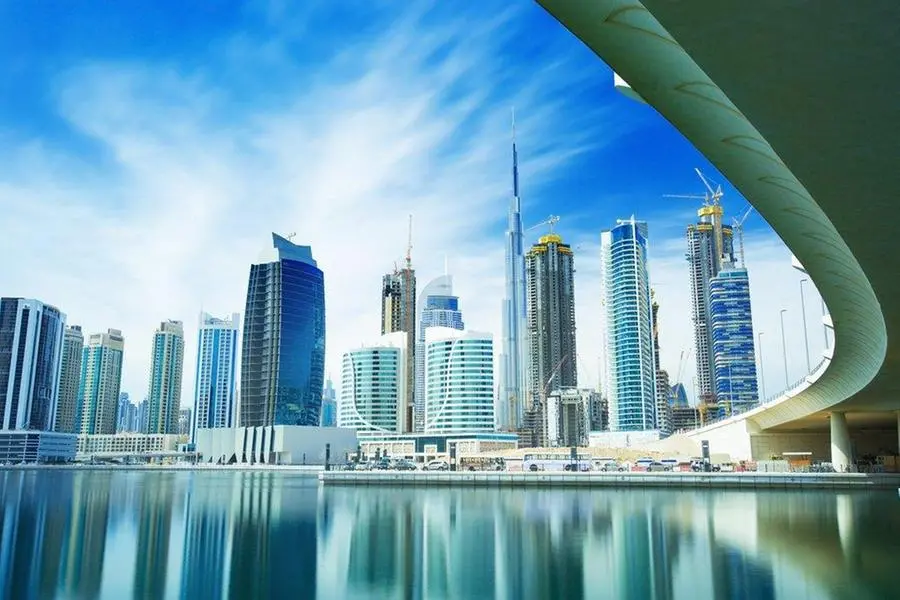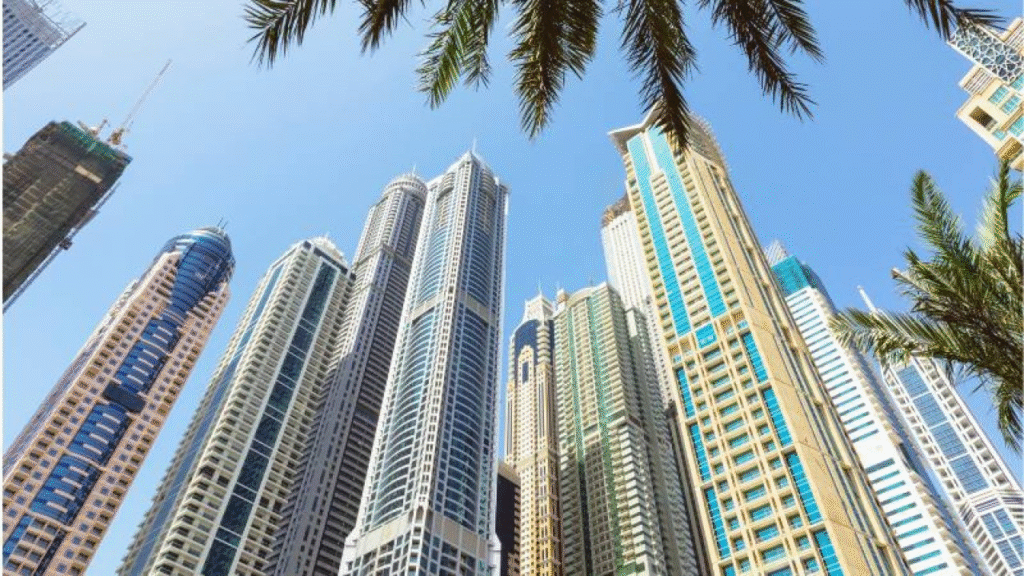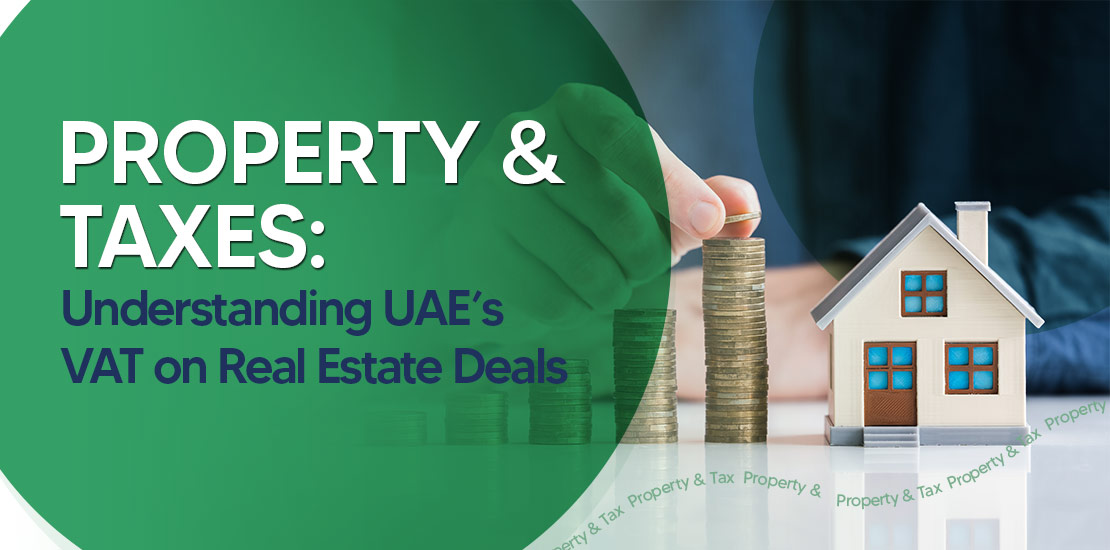Now Reading: Dubai Property Market: 5 Tax Updates Affecting Cross-Border Investors in 2025
-
01
Dubai Property Market: 5 Tax Updates Affecting Cross-Border Investors in 2025
Dubai Property Market: 5 Tax Updates Affecting Cross-Border Investors in 2025

Table of Contents
Dubai Property Market: Dubai’s real estate market in 2025 remains a global investment hub, with 99,000 transactions worth AED 326.7 billion in H1 and projected 5-9% price growth, per Dubai Land Department (DLD) data. Offering 6-10% rental yields, the market benefits from no personal income tax, capital gains tax, or annual property tax, with first-time residential sales zero-rated for VAT (0%), per Federal Tax Authority (FTA) rules.
Cross-border investors, contributing AED 228.35 billion in H1 2025, face new tax updates under the UAE’s alignment with OECD’s Two-Pillar Solution and local regulations, per DAMAC Properties.
Regulated by RERA under Law No. 6 of 2019, Dubai supports Qualifying Free Zone Persons (QFZPs) with 0% corporate tax and offers Golden Visas for AED 2 million+ investments. Below are five tax updates affecting cross-border investors in Dubai’s 2025 property market, shaping compliance and returns.
1. Domestic Minimum Top-Up Tax (DMTT) for Multinational Enterprises
Update: Property Market, Starting January 1, 2025, the UAE introduces a 15% Domestic Minimum Top-Up Tax (DMTT) under OECD Pillar Two for multinational enterprises (MNEs) with global revenues exceeding EUR 750 million, per DAMAC Properties. This applies to corporate entities holding Dubai properties, ensuring a minimum effective tax rate.
Impact on Investors: MNEs using Dubai entities (e.g., DIFC SPVs) for property portfolios face a 15% tax on profits above AED 375,000 if their effective rate falls below 15%, replacing the 9% corporate tax (Federal Decree-Law No. 47 of 2022).
For a AED 10 million Business Bay portfolio yielding AED 700,000 (7%), a 15% DMTT adds AED 105,000 in tax, reducing net yields by 1%. Small MNEs or individual investors are exempt.
Strategy: Use QFZP structures in Jebel Ali Free Zone for 0% corporate tax, ensuring non-qualifying mainland income (e.g., commercial rents) is below 5% or AED 5 million, per FTA. File FTA audits annually to avoid AED 50,000 penalties, preserving 6-7.5% yields.
2. Enhanced VAT Recovery for Commercial-to-Residential Conversions
Update: From 2025, the FTA extends VAT recovery timelines for commercial-to-residential property conversions from three to five years, per updated FTA User Guide. Residential sales remain zero-rated (0% VAT), while commercial sales incur 5% VAT.
Impact on Investors: Cross-border investors converting a AED 3 million Dubai South commercial unit to residential within five years can recover 5% VAT (AED 150,000), offsetting 4% DLD fees (AED 120,000) and conveyancing (AED 6,000-10,000). Late filings beyond six months risk AED 5,000-10,000 penalties, per FTA.
Strategy: File VAT refund claims with DLD-approved documents via FTA’s portal within six months of conversion. Target emerging zones like Dubai South for 7-9% yields, combining with First-Time Home Buyer discounts (5%, AED 150,000) via Dubai REST to maximize savings.
3. Stricter QFZP Compliance for Free Zone Tax Benefits

Update: In 2025, the FTA tightens substance requirements for QFZPs in free zones like Jebel Ali, DMCC, and DWC, mandating a physical office, local employees, and detailed transfer pricing documentation, per KPMG UAE. Non-compliance voids 0% corporate tax benefits, defaulting to 9% or 15% DMTT.
Impact on Investors: Investors using QFZP entities for portfolios (e.g., AED 4 million Palm Jumeirah villa yielding AED 280,000) risk losing AED 25,200 in 9% corporate tax savings if substance rules are unmet.
Setup costs rise by AED 10,000-20,000 for compliance, per JAFZA.
Strategy: Establish a local office (AED 15,000-25,000 annually), hire staff, and maintain arm’s-length pricing records, per FTA’s transfer pricing rules. Pair with 0% VAT (AED 200,000) and DLD waivers (AED 160,000) to ensure tax-free 5.5-7% yields, avoiding AED 50,000 non-compliance fines.
4. Expanded Double Taxation Agreement (DTA) Benefits
Update: The UAE expands its DTA network to 141 countries in 2025, adding 10 new agreements, per DIFC regulations. DTAs prevent double taxation on rental income and gains for investors from countries like the U.S., India, and Germany, with enhanced credits for foreign taxes paid.
Impact on Investors: U.S. investors holding a AED 2 million JVC portfolio yielding AED 160,000 (8%) can claim IRS Form 1118 credits for UAE taxes (e.g., 5% housing fees, AED 8,000), reducing U.S. tax liability by USD 2,180. Indian investors under the Liberalised Remittance Scheme ($250,000 limit) avoid double taxation on AED 160,000 rent, saving INR 1.2 million annually at 30% Indian tax rates.
Strategy: Consult tax advisors to leverage DTA credits, file IRS Form 1118 (U.S.) or Form 67 (India), and ensure Ejari-registered tenancy contracts for housing fee documentation, preserving 7-9% yields. Budget 2.5% Zakat (AED 4,000) for Muslim investors.
5. Mandatory Ejari Registration for Housing Fee Compliance
Update: From January 2025, DLD mandates Ejari registration (AED 195 fee) for all tenancy contracts to enforce the 5% municipality housing fee (based on annual rent), per Engel & Völkers. Non-compliance triggers AED 1,000-5,000 penalties per contract.
Impact on Investors: For a AED 2.5 million Dubai Marina apartment yielding AED 175,000 (7%), the 5% housing fee (AED 8,750) is payable via DEWA bills. Unregistered contracts risk AED 5,000 fines, reducing net yields by 0.2%. Cross-border investors managing multiple properties face higher compliance costs.
Strategy: Register all leases via Ejari (AED 219.75 with VAT) through Dubai REST, self-manage rentals to avoid 8-12% management fees (AED 14,000-21,000), and budget housing fees to maintain 6-7.5% yields. Combine with 0% VAT (AED 125,000) and DLD waivers (AED 100,000) for off-plan purchases.
Why These Updates Matter
These five tax updates DMTT for MNEs, extended VAT recovery, stricter QFZP rules, expanded DTAs, and mandatory Ejari registration reshape cross-border investment strategies, adding compliance costs but preserving Dubai’s tax advantages, per DLD’s AED 761 billion 2024 transactions.
They save 5-10% on costs (AED 100,000-200,000) via 0% VAT, QFZP structures, and DTA credits, boosting net yields by 0.5-1%. Hidden costs like 2% agency commission (+5% VAT), conveyancing (AED 6,000-10,000), and service charges (AED 10-53.7/sq.ft.) require budgeting. Dubai’s 6.2% GDP growth, 25 million tourists, and 90-95% occupancy drive demand, per DLD.
Implementation Strategies
- Mitigate DMTT Exposure: Use QFZP structures for 0% corporate tax, ensuring FTA compliance to avoid 15% DMTT (AED 105,000 on AED 700,000).
- Recover VAT Promptly: File conversion refunds within six months, saving AED 150,000, and verify residential status via DLD title deeds.
- Meet QFZP Requirements: Invest AED 15,000-25,000 in local offices and audits to secure 0% tax, avoiding AED 25,200 in corporate tax.
- Leverage DTAs: Claim credits via IRS Form 1118 or Form 67, saving USD 2,180 or INR 1.2 million, and budget Zakat (AED 4,000).
- Ensure Ejari Compliance: Register contracts via Dubai REST (AED 219.75), avoiding AED 5,000 fines, and self-manage to save AED 14,000-21,000.
- Budget Hidden Costs: Plan for 4% DLD fees, 2% commission (+5% VAT), conveyancing, and service charges, using Mollak for transparency.
- Negotiate Incentives: Secure DLD waivers (AED 80,000-160,000) and First-Time Home Buyer discounts (5%, AED 100,000-250,000) in off-plan SPAs.
Outlook for Dubai’s 2025 Market

Dubai’s Economic Agenda D33, 2040 Urban Master Plan, and infrastructure like Metro Blue Line and Al Maktoum Airport fuel demand, per DLD. Despite 76,000 new units, 90-95% absorption rates and RERA protections mitigate oversupply risks. Off-plan sales (70% of Q1 2025) with 5-20% discounts and investor-friendly policies like Golden Visas drive affordability, per Dubai Real Estate Strategy 2033. These tax updates ensure compliance while maximizing 6-10% yields and 8-15% capital gains for cross-border investors.
Conclusion
The 2025 tax updates DMTT, VAT recovery extensions, QFZP compliance, DTA expansions, and Ejari mandates require cross-border investors to adapt strategies to maintain Dubai’s tax advantages. Saving 5-10% on costs and navigating compliance, these updates support 6-10% tax-free yields in a dynamic market. With RERA oversight, strategic budgeting, and home-country tax planning, investors can capitalize on Dubai’s thriving real estate landscape. Dubai Property Market
read more: Dubai Real Estate: 7 Smart Moves to Avoid Transfer Fee Penalties in 2025






















